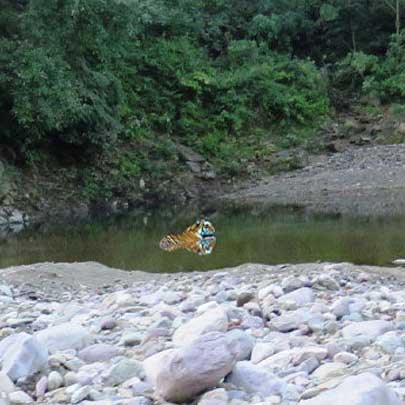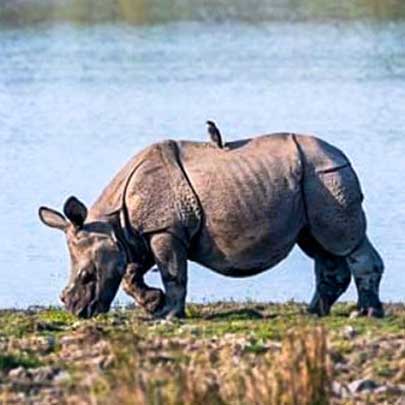Eco-Tourism At Pilibhit Tiger Reserve: A Model For Sustainable Tourism
Pilibhit Tiger Reserve is an exceptional destination for eco-tourists for its stunning biodiversity and pioneering efforts in promoting sustainable tourism. With an extensive mix of flora and fauna, including the majestic Bengal tiger, Pilibhit offers a blend of adventure and ecological consciousness that provides the opportunity to explore responsibly while supporting conservation efforts. Here’s how Pilibhit Tiger Reserve serves as a model for sustainable eco-tourism.
1. Community Involvement and Local Empowerment
- Employment Opportunities: Pilibhit’s eco-tourism efforts create jobs for locals, from trained safari guides to community-run guesthouses and homestays, allowing local people to claim benefits from tourism.
- Cultural Preservation: Community involvement emphasizes preserving local traditions, cuisine and folklore, allowing visitors to experience authentic cultural exchanges while supporting residents.

2. Wildlife Conservation Efforts
- Protection of Biodiversity: Pilibhit is home to many endangered species, including the Bengal tiger, leopards and swamp deer. By promoting eco-tourism, the reserve raises awareness and funds crucial to protecting these species.

- Habitat Restoration: Tourism revenue contributes to habitat preservation projects, including reforestation of buffer zones to create safe corridors for wildlife movement and reduce human-wildlife conflict.
3. Eco-friendly Safaris and Guided Tours
- Low-Impact Safaris: The reserve offers regulated jeep and walking safaris, ensuring minimal disturbance to animals and reducing pollution from vehicle emissions.

- Responsible Wildlife Viewing: Trained guides promote ethical wildlife viewing practices, discouraging close encounters and educating visitors on maintaining a respectful distance.

4. Green Infrastructure
- Eco-Lodges and Sustainable Accommodations: Many accommodations around Pilibhit are designed with eco-conscious principles, using solar energy, rainwater harvesting and natural ventilation to reduce environmental impact.

- Plastic-Free Policies: The reserve encourages visitors to reduce plastic use by providing alternatives like stainless steel bottles, biodegradable packaging and waste management practices.
5. Educational Programs for Visitors
- Conservation Workshops: Pilibhit offers workshops on wildlife conservation, biodiversity and sustainable practices, deepening visitors’ understanding of the region’s unique ecological value.
- Interactive Learning Experiences: Programs such as “A Day as a Forest Guard” allow visitors to participate in daily conservation activities, fostering a sense of responsibility and connection with nature.
6. Support for Local Crafts and Sustainable Goods
- Eco-Friendly Souvenirs: Visitors can purchase handmade products, organic honey and handicrafts from local vendors, supporting small businesses and sustainable livelihoods.
- Promotion of Seed Paper and Plantable Goods: Pilibhit Reserve promotes seed paper products as souvenirs, such as bookmarks and postcards, that align with its conservation mission.

7. Eco-Friendly Transport and Accessibility
- Cycling and Nature Walks: Besides jeep safaris, the reserve offers cycling trails and nature walks, reducing the carbon footprint of travel and providing a more immersive experience.

- Electric Vehicles in the Future: The reserve is considering the introduction of electric vehicles as a way to make transportation eco-friendly and further reduce emissions.
8. Waste Management Initiatives
- Zero-Waste Practices: Pilibhit is moving towards zero-waste management by composting organic waste, using biodegradable materials and promoting a strict “leave no trace” policy among visitors.
- Public Awareness Campaigns: Through signage and workshops, visitors learn about the impact of waste on local wildlife and are encouraged to adopt waste reduction practices.
9. Environmental Awareness for Future Generations
- School Programs and Youth Camps: The reserve organizes environmental programs for local students, teaching them about wildlife conservation and the importance of biodiversity protection.
- Volunteer Programs for Nature Enthusiasts: Pilibhit encourages eco-tourists to volunteer in various activities, from wildlife monitoring to community projects, giving them a deeper connection to conservation work.
Pilibhit Tiger Reserve’s eco-tourism model is a blueprint for sustainable tourism, blending adventure, community support and conservation in a way that benefits both the environment and its local people. For travelers, it offers the chance to experience the natural beauty of Pilibhit responsibly while supporting meaningful environmental and social initiatives.












































































